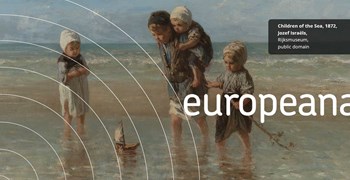The Latvian “nightingale” Elfrīda Pakule
Historical sound recordings are treasures that, since the end of 19th century, inform us about musical life, about performers and about musical interpretation. We would like to tell you about one of the great 20th century Latvian opera voices, a coloratura soprano, whose recording legacy is a powerful witness to her remarkable voice. On hearing her recordings today, even with so many brilliant and talented singers all around us, one can agree with the sensation and excitement created by the press in the 1930s about the “Latvian Nightingale”.

Elfrīda Pakule, unknown author, 1948
Elfrīda Pakule’s (1912-1991) path to the opera stage was forged with slow and patient work, but fame and success came fast and was spectacular. In 1930 in Rīga, Latvia, the owner of an excellent tenor voice Pauls Sakss (1899-1966) agreed to become Elfrīda’s vocal teacher, with the provision that she fully submitted to his teaching regime. The rules were as follows:
– scales practice only for the first 2 years;
– it was forbidden to learn by listening to the recordings of other singers;
– Elfrīda had a very wide vocal range (up to C of 4th octave) and to achieve evenness throughout her range, she was not permitted to sing higher than F or G of 3rd octave.
After eight years of private teaching, P. Sakss finally permitted Elfrīda to make her debut in a radio broadcast, accompanied by symphonic orchestra. And so on May 3, 1938 her first public performance took place. The public and critical reaction was undivided – it was a sensation! High praise was given to her vocal technique as well as her musical talent. An excerpt from an article in the local press reads:
Rigasche Rundschau, 29.11.1938, “eine Koloratursängerin von ausgezeichneten Qualitäten… Ihre Fiorituren un Läufer, Kadenzen, Staccati, Portati geben sich leicht und flüssig und entbehren nie des Charmes, weil die Stimme der Sängerin selbst in den höchsten Lagen noch Weicheit und Wohllaut zeigt. Dazu kommt der seine musikalische Geschmak…”(“a coloratura singer with excellent qualities…her fioriture and vocal runs, cadences, staccato, and portato are easy and fluent and never devoid of charm, because the singer’s voice even at the highest ranges still shows softness and sonorousness. In addition her musical taste…”)

Elfrīda Pakule, unknown author
Her next concert soon followed. The concert hall was overcrowded with more than 1000 listeners, quite an unusual phenomenon in Latvia’s musical life at that time. The praise following the event was neverending.
We can guess what happened next – Elfrīda was invited to become a soloist in the Riga Opera House, where operas of W.A.Mozart, G.Verdi, G.Puccini were regularly performed. In 1941 E. Pakule was one of three candidates selected to participate in a performers’ competition in Moscow. Unfortunately, all who went to the competition had to stay in Russia as just then the second World War broke out. Elfrīda continued to perform there – in hospitals, on the front and later was a very loved and respected artist at the Moscow Philharmonic. Only after the war was she able to return to Riga, where she was asked to return immediately to the opera stage.
And now let’s listen to this unique voice:
References:
Briede-Bulavinova, V. “Elfrīda Pakule”. Liesma, Rīga, Latvia (1970)
Vītola, I. “Latviešu lakstīgala Elfrīda Pakule”. Portal www.la.lv, published July 17, 2012.
Günther, R. “Konzert Elfride Pakuls”. Rigasche Rundschau, Nr. 272 (29.11.1938).
by Lāsma Meldere-Šestakova and Zane Grosa, National Library of Latvia












